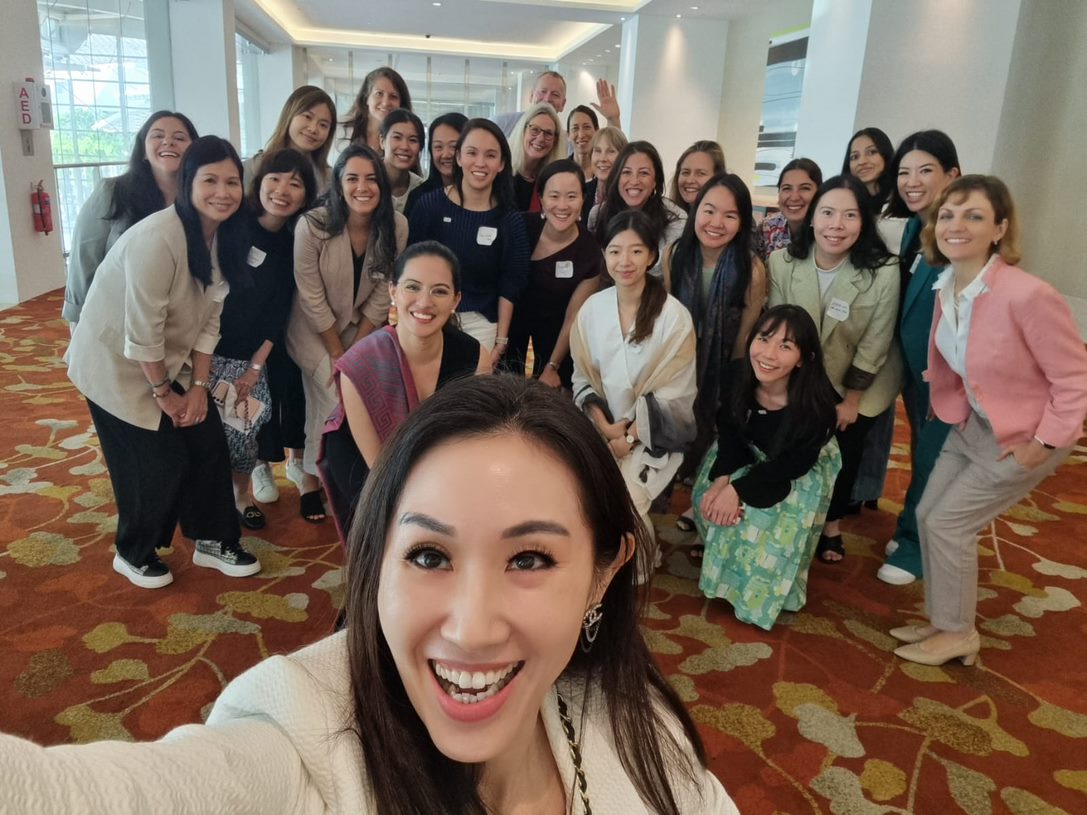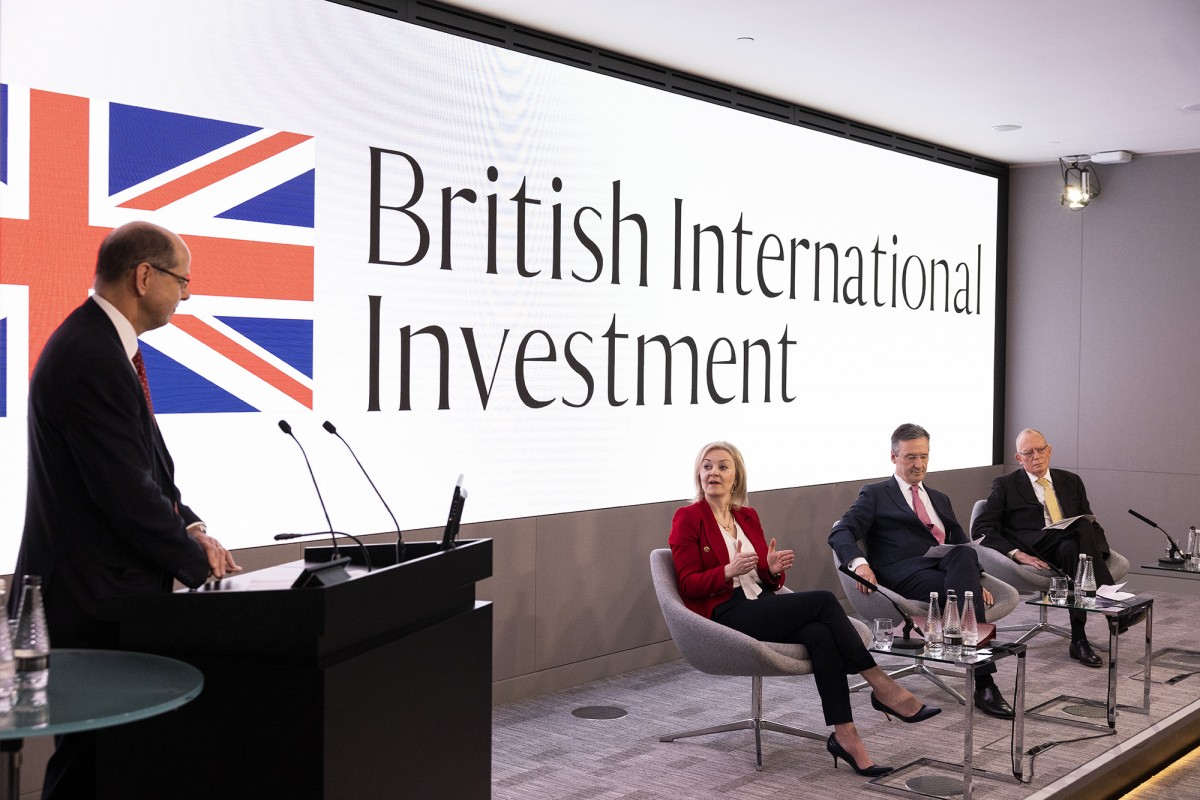Recession? Inflation? War? Climate change?
The world is entering increasingly turbulent and unpredictable territory. Stock market gyrations suggest investors are torn on the global outlook. And the World Bank has halved its growth projections for 2022 from 5.7% to 2.9%.
Who can lead in such troubled times? Women.
Consider the following: Harvard Business Review recently examined 163 multinational companies that appointed women to their leadership teams. The results were astonishingly consistent: Wherever women were deployed at the executive level with the power to lead and decide, companies thrived.
HBR identified two prominent strains of success. First, those companies with new female leadership became more open to change and less open to risk. Second, the companies decreased their emphasis on mergers and acquisitions and increased research and development.
These findings point to the fact that by nature, women are more likely to invest in long-term health and sustainability, thereby generating positive impact, and less likely to chase short-term gains.
When it comes to investing, data shows that staying the course in investments yields stronger upside.
In the current market environment, it is likely that short-term gains will be hard to come by and will likely be found in industries from which we need to be transitioning – oil and gas, weapons and munitions industries, for example. The challenge: navigating the global economic crisis while transitioning our investments, and economies, to more sustainable positions.
For businesses and communities looking to manage financial returns and downside risk, having more women around the decision-making table delivers palpable advantages.
Systems change
Women tend to be more empathetic and consider the broader impact of their decisions on the community, contributing to an organization’s improved social and financial outcomes, as Joan Michelson wrote in a Forbes article entitled “Why Choosing Women as Leaders Reduces Risk.”
What’s true for businesses is true for broader systems. Indeed, the fiscal health of a society can be measured by the inclusion and participation of women. Goldman Sachs reported last year that its strongest performing emerging market government bonds were correlated with better performance on a gender-equality index tracking women’s education, labor, health, agency, and power.
“A portfolio of debt from the eight developing economies with the best track records of empowering women would have outperformed the eight with the worst by about 1% over the past seven years,” wrote Bloomberg.
A different vantage point
A University of Münster meta-analysis of 11,000 data points on gender differences in negotiation outcomes revealed that experienced women excelled in negotiations when they have the bargaining range and when negotiating on behalf of others.
What accounts for that success?
Studies of female negotiators tend to cite three distinct traits that are more prevalent among women than men—collaboration, risk awareness and mitigation, and long-term thinking.
On the whole, women problem-solve differently. They manage conflict differently. And they make big decisions differently.
Women tend to engage in a collaborative leadership style that makes them less susceptible to ego-based decision-making. They also engage in diffused or network leadership styles that are less hierarchical than traditional male styles.
There’s also convincing evidence that women are less likely to engage in high-risk behavior and take a longer view in their decision-making. This all means that gender diversity provides a powerful advantage.
Our book, The XX Edge: Unlocking Higher Returns and Lower Risk, presents data, facts, and case studies making the business case for a new paradigm of gender intersectional investing where more women have greater decision-making roles — leading to better risk management, stronger returns for individual investors and economic resilience.
Women and portfolio construction
Capital is capable of doing two things at the same time – delivering optimal financial returns and impact returns. The two entities we respectively founded, Women of the World Endowment (WoWE); and Tara Health Foundation, have portfolios that demonstrate this.
Their respective portfolios utilize three main strategies:
- Aligning portfolios with values: It is essential, now more than ever, that all investments be evaluated for sustainability including climate, peace and security and more. WoWE and Tara Health leverage powerful tech tools like EthosESG (a WoWE portfolio company) and As You Sow (a Tara Health grantee) to screen out public companies engaged in non-sustainable practices to build a values-aligned portfolio.
- Investing in women + innovation: WoWE and Tara Health further lean into impact by focusing on investments that center women and underrepresented communities in positions of leadership and in driving innovation to address global issues.
WoWE has continued its collaboration with Urban Innovation Fund by following its investment in Fund II with an investment in Fund III. The Fund is run by successful female GPs, Clara Brenner and Julie Lein investing in diverse-led innovative urban tech startups. 69% of founding team members and 56% of the boards of Fund II’s portfolio companies are women or people of color.
Tara Health is an anchor investor in RH Capital, a Rhia Ventures Fund, targeting early-stage, high-impact companies that are driving innovation, access, and equity across the reproductive and maternal health landscape.
- Investing for systemic change: WoWE and Tara Health have invested in Intelligent Medicine Exchange (IMX) which is pioneering the first US healthcare futures exchange and recently filed for regulatory approval, moving it a step closer to its role in transforming the healthcare cost structure in the US and creating positive outcomes for all.
WoWE added to its portfolio FVLCRUM, a private equity fund with a mission to close the racial equity gap.
The world is facing strong headwinds. The widening turbulence presents a unique opportunity to reconsider the way we have traditionally responded to crises, economic and otherwise, and to re-imagine which modes of thinking and negotiating will lead to better results.
Having more women in leadership positions isn’t just about righting the collective ship that is our planet and its people. It is about accelerating growth, peace, and prosperity for our collective future. It is time for the world to get smart and bring more women to the decision-making and negotiating table.
Patience Marime-Ball is the founder and CEO of Women of the World Endowment, an investment nonprofit focused on gender intersectional investing and the co-author of The XX Edge: Unlocking Higher Returns and Lower Risk.
Ruth Shaber, MD is the founder and president of Tara Health Foundation, which promotes health, well-being, and opportunity for women and girls through innovative evidence-informed programs, and the co-founder and board chair of Rhia Ventures, a group of foundations and investors that collaborate to bring new types of capital and enterprise to the field of reproductive health in the U.S. She is also co-author of The XX Edge: Unlocking Higher Returns and Lower Risk.











